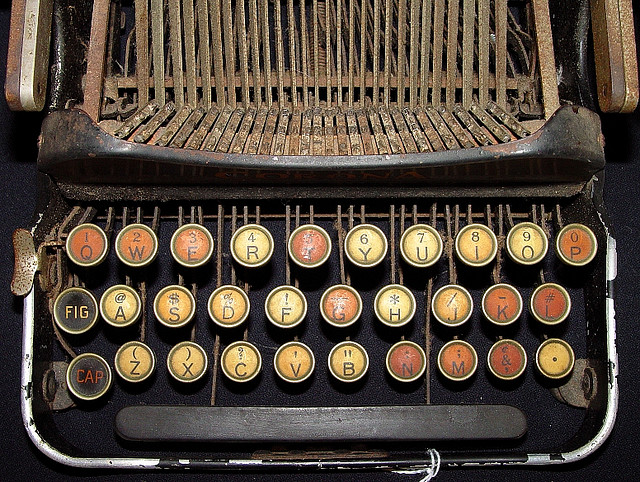Here are 25 pieces of journalism from this year, alphabetized by author name, which made me consider something new or reconsider old beliefs or just delighted me.
- “Exodus” (Ross Andersen, Aeon) A brilliant longform piece that lifts off with Elon Musk’s mission to Mars and veers in deep and mysterious directions.
- “How Gary Hart’s Downfall Forever Changed American Politics” (Matt Bai, The New York Times Magazine) A clear-eyed rendering of the big Washington scandal of 1987, when, years before the Internet, the line between public and private was permanently obliterated.
- “Barack Obama, Ferguson, and the Evidence of Things Unsaid” (Ta-Nehisi Coates, The Atlantic) Nobody speaks truth to race in America quite like Coates, and the outrage of Ferguson was the impetus for this spot-on piece about the deeply institutionalized prejudice of government, national and local, in the U.S.
- “The Golden Age of Journalism?” (Tom Engelhardt, TomDispatch) The landscape has never been more brutal for news nor more promising. The author luxuriates in the richness destabilization has wrought.
- “Amazon Must Be Stopped” (Franklin Foer, The New Republic) Before things went completely haywire at the company, Foer returned some sanity to the publication in the post-Peretz period. This lucid article argues that Amazon isn’t becoming a monopoly but already qualifies as one.
- “America in Decay” (Francis Fukuyama, Foreign Affairs) Strong argument that the U.S. public sector is so dysfunctional because of a betrayal of meritocracy in favor of special interests and lobbyists. The writer’s idea of what constitutes a merit-based system seems flawed, but he offers many powerful ideas.
- “What’s the Matter With Russia?” (Keith Gessen, Foreign Affairs) An insightful meditation about Putin’s people, who opt to to live in a fairy tale despite knowing such a thing can never have a happy ending.
- “The Dying Russians” (Masha Gessen, New York Review of Books) Analysis of Russia’s high mortality rate suggests that the root cause is not alcohol, guns or politics, but simply hopelessness.
- “Soak the Rich” (David Graeber, Thomas Piketty) Great in-depth exchange between two thinkers who believe capitalism has run amok, but only one of whom thinks it’s run its course.
- “The First Smile” (Michael Graziano, Aeon) The Princeton psychology and neuroscience professor attempts to explain why facial expressions appear to be natural and universal.
- “The Creepy New Wave of the Internet” (Sue Halpern, New York Review of Books) The author meditates on the Internet of Things, which may make the world much better and much worse, quantifying us like never before.
- “Super-Intelligent Humans Are Coming” (Stephen Hsu, Nautilus) A brisk walk through the process of genetic modification, which would lead to heretofore unknown brain power.
- “All Dressed Up For Mars and Nowhere to Go” (Elmo Keep, Matter) A sprawling look at the seeming futility of the MarsOne project ultimately gets at a more profound pointlessness–pursuing escape in a dying universe.
- “Public Lives, Private Browsing, and the Two-Way Mirror of the Celebrity Browsing Scandal” (Molly Lambert, Grantland) The best thing written about that strange weekend known as the Fappening, when famous people–and the rest of us–were completely revealed.
- “The Myth of AI” (Jaron Lanier, Edge) Among other things, this entry draws a neat comparison between the religionist’s End of Days and the technologist’s Singularity, the Four Horseman supposedly arriving in driverless cars.
- “The Disruption Machine” (Jill Lepore, The New Yorker) The “D” word, its chief promulgator, Clayton M. Christensen, and its circuitous narratives, receive some disruption of their own.
- “The Longevity Gap” (Linda Marsa, Aeon) A severely dystopian thought experiment: Will the parallels of widening income disparity and innovations in medicine lead to two very different lifespans for the haves and have-nots?
- “The Genetics Epidemic” (Jamie F. Metzl, Foreign Affairs) Genetic modification studied from an uncommon angle, that of national-security concerns.
- “My Captivity” (Theo Padnos, The New York Times Magazine) A harrowing autobiographical account of an American journalist’s hostage ordeal in the belly of the beast in Syria.
- “We Are a Camera” (Nick Paumgarten, The New Yorker) In a time of cheap, ubiquitous cameras, the image, merely an imitation, is ascendant, and any event unrecorded seemingly has less currency. The writer examines the strangeness of life in the GoPro flow.
- “A Goddamn Death Dedication” (Alex Pappademas, Grantland) A knowing postmortem about Casey Kasem, America’s deejay when the world was hi-fi but before it became sci-fi.
- “In Conversation: Chris Rock” (Frank Rich, New York) The exchange about “black progress” is an example of what comedy does at its best: It points out an obvious truth that so many have missed.
- “The Mammoth Cometh” (Nathaniel Rich, The New York Times Magazine) A piece which points out that de-extinct animals won’t be exactly like their forebears, nor will augmented humans of the future be just like us. It’s progress, probably.
- “Hello, My Name Is Stephen Glass, and I’m Sorry” (Hanna Rosin, The New Republic) Before the implosion of the publication, the writer wondered what it would mean to forgive her former coworker, an inveterate fabulist and liar, and what it would mean if she could not forgive.
- “Gilbert Gottfried: New York Punk” (Jay Ruttenberg, The Lowbrow Reader) Written by the only person on the list whom I know personally, but no cronyism is necessary for the inclusion of this excellent analysis of the polarizing comic, who’s likely more comfortable when at his most alienating.


